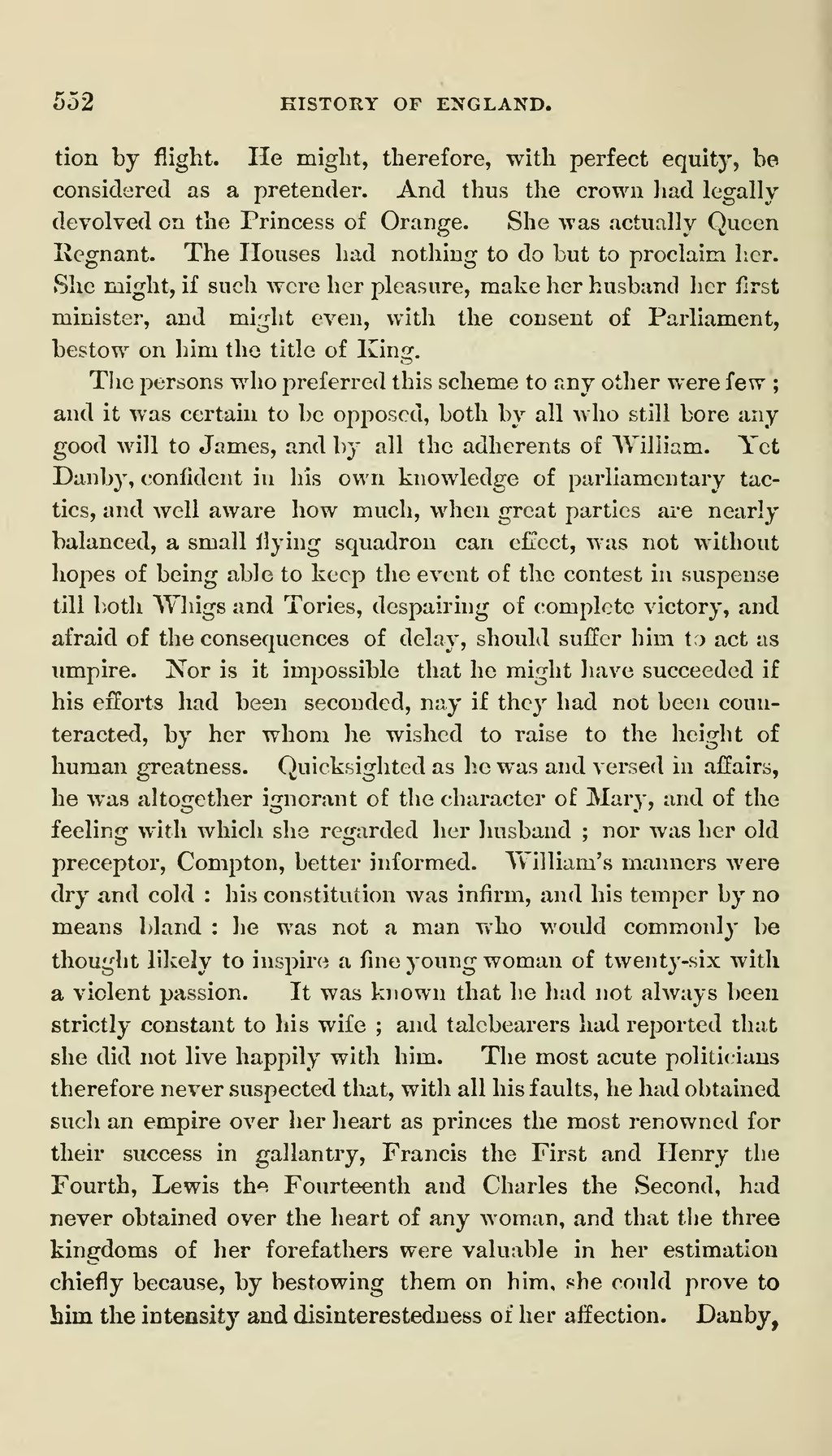by flight. He might therefore, with perfect equity, be considered as a pretender. And thus the crown had legally devolved on the Princess of Orange. She was actually Queen Regnant. The Houses had nothing to do but to proclaim her. She might, if such were her pleasure, make her husband her first minister, and might even, with the consent of Parliament, bestow on him the title of King.
The persons who preferred this scheme to any other were few; and it was certain to be opposed, both by all who still bore any good will to James, and by all the adherents of William. Yet Danby, confident in his own knowledge of parliamentary tactics, and well aware how much, when great parties are nearly balanced, a small flying squadron can effect, was not without hopes of being able to keep the event of the contest in suspense till both Whigs and Tories, despairing of complete victory, and afraid of the consequences of delay, should suffer him to act as umpire. Nor is it impossible that he might have succeeded if his efforts had been seconded, nay, if they had not been counteracted, by her whom he wished to raise to the height of human greatness. Quicksighted as he was and versed in affairs, he was altogether ignorant of the character of Mary, and of the feeling with which she regarded her husband; nor was her old preceptor, Compton, better informed. William's manners were dry and cold, his constitution was infirm, and his temper by no means bland; he was not a man who would commonly be thought likely to inspire a fine young woman of twenty-six with a violent passion. It was known that he had not always been strictly constant to his wife; and talebearers had reported that she did not live happily with him. The most acute politicians therefore never suspected that, with all his faults, he had obtained such an empire over her heart as princes the most renowned for their success in gallantry, Francis the First and Henry the Fourth, Lewis the Fourteenth and Charles the Second, had never obtained over the heart of any woman, and that the three kingdoms of her forefathers were valuable in her estimation chiefly because, by bestowing them on him, she could prove to him the intensity and disinterestedness of her affection. Danby,
